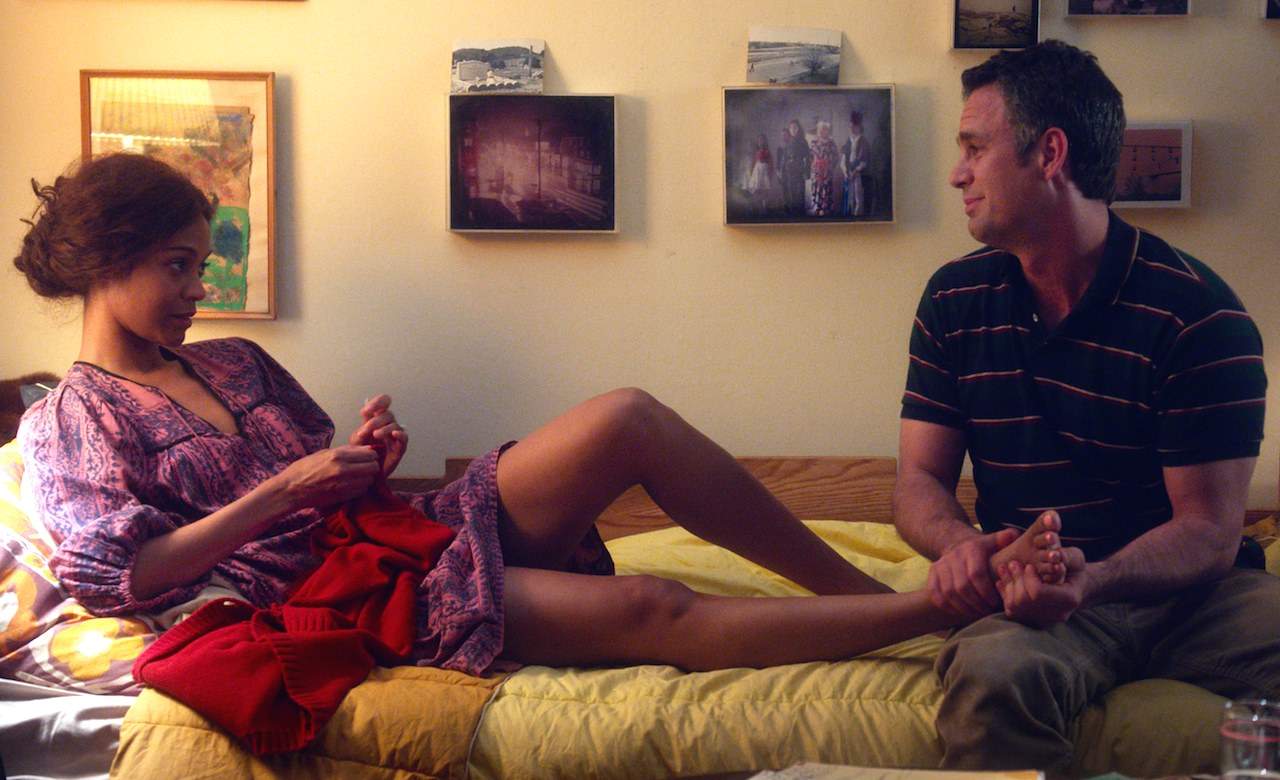Infinitely Polar Bear
A big-hearted, autobiographical look at growing up with a bipolar parent.
Overview
A small movie with a big heart: you've heard that claim before. Sometimes though, there's an example that proves the cliche, that one modest effort that punches above its weight in emotion. Don't just take our word for it — watch Infinitely Polar Bear, the latest great example. Its autobiographical look at growing up with a bipolar parent is the type of film this description was made for.
Life doesn't fall into neat boxes for 12-year-old Amelia Stuart (Imogene Wolodarsky) and her younger sister, Faith (Ashley Aufderheide), nor for their nuclear family. Their father, Cam (Mark Ruffalo), lives with a condition that's not without its daily challenges — and even more so when their mother, Maggie (Zoe Saldana), goes away to graduate school, leaving Cam as the primary caregiver.
The scenario and its stitching together of episodic slices of the Stuarts' lives sounds like something tailor-made for a quirky indie film adventure; however, writer/director Maya Forbes never takes the too-cute or too-eccentric route. Instead, in telling a tale based on her own childhood — and with her own daughter, Wolodarsky, basically playing the filmmaker's younger self — she grounds Infinitely Polar Bear in intimacy, affection and lived-in experience.
Yes, the movie has adorable kids struggling with difficult situations, often embarrassed and only sometimes seeing the funny side of things — but it also shows ample warmth and acceptance. Anger and frustration bubble up on several occasions as the film touches upon issues of class, race and poverty, yet the characters are never meekly resigned their fate, nor are they despairing, self-pitying or defeated. With the type of care that only comes from having been there and done that, Forbes ensures that their perseverance remains their strongest element. You believe that times are tough, just as you believe they'll find a way to get through it all.
The cast, understandably, is key, both young and old. Oozing the kind of naturalism most child actors lack, Wolodarsky's Amelia proves an ideal guide through the movie, though hers isn't the only impressive portrayal. As the younger Faith, Aufderheide is suitably innocent and mischievous in the way kids are, while Saldana simmers with the inner conflict that results from Maggie choosing the path of short-term pain for long-term gain. The movie belongs to Ruffalo, though, with his superb sliding from the manic to the depressive ends of the spectrum and back again. His isn't a performance made by the extremes, but of empathy for the moments in between, when Cam's good and bad days become one.
Indeed, it is so easy to get so thoroughly wrapped up in Ruffalo's endearing turn that the film's few concessions to cliche in its style — handheld camera work, an upbeat soundtrack and heavy use of montages — are just as easily overlooked. Actually, they feel like they fit a movie that is slight but sweet in just the right proportions, and rather charming too.







